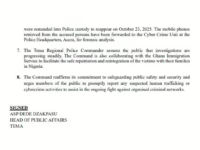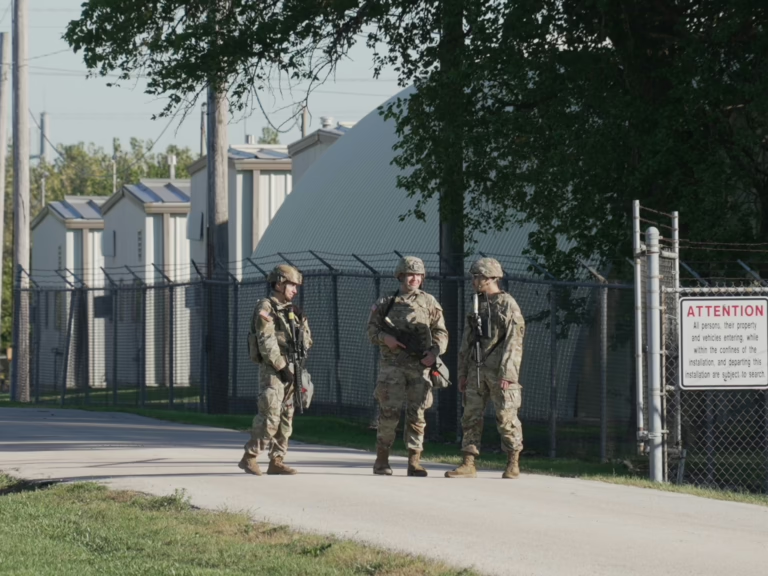Federal court halts National Guard deployment for two weeks, warning that sending troops could exacerbate tensions.
Published On 10 Oct 2025
A federal judge in Chicago has issued a temporary injunction preventing President Donald Trump from deploying hundreds of National Guard troops in Illinois.
This development marks Chicago as the newest center of contention amid the Trump administration’s intensified efforts to deport millions of immigrants, a campaign that has sparked numerous allegations of civil rights violations and legal challenges.
On Thursday, US District Judge April Perry stated that allowing National Guard forces into Illinois would likely “escalate tensions rather than ease them.” This ruling follows a similar judicial decision earlier this week that blocked troop deployment in Portland, Oregon.
Judge Perry announced that her comprehensive written ruling would be released on Friday.
The legal action was initiated on Monday by the city of Chicago and the state of Illinois, aiming to halt the arrival of Guard units from Illinois and Texas. At the time of the hearing, some troops had already been stationed at an immigration facility located in Broadview, a suburb of Chicago.
During her on-the-record decision, Judge Perry expressed skepticism regarding the federal government’s assertions of violent incidents during protests at the Broadview immigration center.
She referenced a concurrent ruling by another Chicago judge, which temporarily restricted federal agents‘ authority to use force against demonstrators. This order came after protesters and journalists filed a lawsuit alleging injuries caused by federal officers at the same site.
Judge Perry emphasized that the protests were a reaction to the conduct of US Immigration and Customs Enforcement (ICE) agents, and that deploying National Guard troops would only “intensify the unrest initiated by the defendants themselves.”
President Trump has recently urged the incarceration of Democratic officials in Illinois who oppose his expansive deportation strategy, especially following the arrival of armed Texas troops to support the operation.
Meanwhile, a federal appeals court panel in San Francisco signaled on Thursday that it might overturn the injunction blocking troop deployment in Portland, potentially allowing hundreds of soldiers to enter the city.
The administration’s immigration enforcement campaign is a fulfillment of Trump’s campaign promise to eliminate what he describes as waves of foreign “criminals” from the United States.
Officials argue that the presence of National Guard troops is essential to safeguard immigration personnel and facilities in Chicago, portraying the city inaccurately as a “conflict zone.”
President Trump has also indicated he might invoke the seldom-used Insurrection Act to authorize military or National Guard deployments nationwide if judicial rulings or local authorities impede his plans.
The Insurrection Act empowers the president to mobilize military forces or federalize National Guard units anywhere in the country to restore order during times of rebellion or civil unrest.
The last invocation of this law occurred in 1992 under Republican President George H.W. Bush, in response to widespread riots in Los Angeles following the acquittal of four police officers involved in the beating of Rodney King, an African American man. The unrest lasted six days, during which 2,000 National Guard members and 1,500 Marines were deployed. The violence resulted in 63 fatalities and extensive property damage, including looting, assaults, and arson.






















